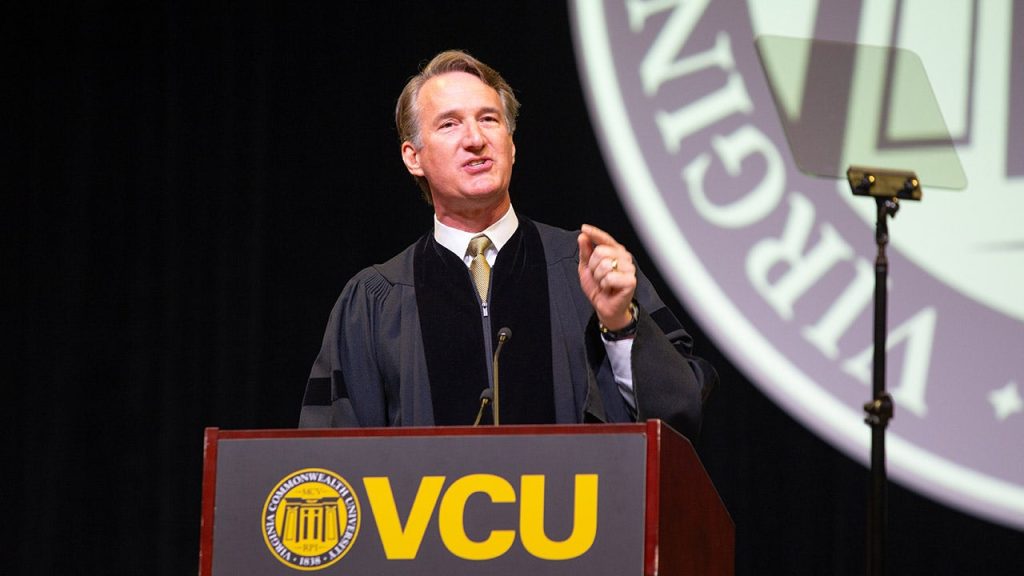Two Virginia public universities have decided not to require students to complete diversity, equity, and inclusion (DEI) classes in order to graduate after a recent audit by Gov. Glenn Youngkin. Virginia Commonwealth University and George Mason University will not make DEI-centered courses mandatory for undergraduates this fall, but the classes will still be offered. The decisions were made after Youngkin’s education secretary’s office reviewed syllabi for the planned “Racial Literacy” courses at VCU and “Just Societies” courses at George Mason and criticized them as “core curriculum mandates that are a thinly veiled attempt to incorporate the progressive left’s groupthink.” The VCU Board of Visitors voted not to require a “racial literacy course” as part of the General Education curriculum, with a focus on academic freedom and student autonomy. VCU President Michael Rao expressed support for racial literacy courses and encouraged students to explore them.
The VCU racial literacy mandate was proposed in response to protests and riots following the death of George Floyd in Minneapolis, with classes focusing on applying a racial lens to subjects such as media, activism, healthcare, psychology, and education. The VCU board includes eight Youngkin appointees out of sixteen members, with the possibility for Youngkin to appoint additional members as seats open up. Following the decision at VCU, more than 100 students walked out of Gov. Youngkin’s commencement speech, showing support for Palestinians and protesting his stance on racial equity in education. Similarly, George Mason University decided not to mandate DEI classes for undergraduates this fall, with uncertainties about the future of the “Just Societies” courses. A committee report cited concerns about indoctrination and silencing of diverse perspectives through DEI programming and curriculum, leading to hesitation among board members.
VCU and GMU faced criticism from some members of their respective Boards of Visitors for the proposed DEI mandates, with concerns about indoctrination and the promotion of divisive concepts. Michael J. Meese, a Youngkin appointee, suggested that Youngkin’s executive order banning divisive concepts, including critical race theory, in K-12 public schools should also apply to public universities. Despite these reservations, both universities have decided not to make DEI classes mandatory for undergraduates this fall, pending further discussion with the new provost at GMU. The decisions were made in an effort to uphold academic freedom and empower students to choose their educational paths. Concerns remain about the potential for indoctrination and censorship of varying viewpoints in DEI programming and curriculum at both universities.
As registration for fall classes approached, both VCU and GMU made the decision to not mandate DEI classes for undergraduates, but the future of such requirements remains uncertain. VCU President Rao expressed support for racial literacy courses as a tool for achieving inclusion and encouraged students to explore them. The decisions at both universities reflect a balancing act between promoting diversity and inclusion while preserving academic freedom and student choice. The involvement of Gov. Youngkin’s appointees on the Boards of Visitors has brought additional scrutiny to the proposed DEI mandates, with discussions on the potential for indoctrination and divisive concepts in the curriculum. The ongoing debate underscores the challenges universities face in addressing issues of diversity, equity, and inclusion while respecting differing viewpoints and academic freedom.


